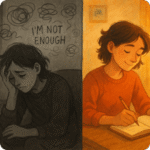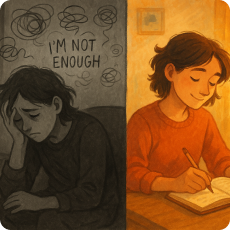Susan Inman
In my community across Canada of families of people living with psychotic disorders like schizophrenia, BC is considered to have the best Mental Health Act. It ensures that our family members potentially have access to the fastest route to getting out of psychosis if they have relapses, which are not uncommon. People admitted involuntarily to a psychiatric unit can be treated if they are seen to be a danger to self or others.
BC’s Mental Health Act includes something called deemed consent which means that when people are admitted involuntarily to a psychiatric unit, two physicians can decide if they need medically based treatment and can initiate it. Patients who don’t believe they should receive treatment can request a review panel.
Like too many disability rights organizations, the Council of Canadians with Disabilities (CCD) thinks that even people with severe mental illnesses should always decide what, if any, treatment they will have. This is the reason they launched in 2016 a Charter challenge to our Mental Health Act and its use of deemed consent. This case finally made it to BC’s Supreme Court for four weeks this past June.
The CCD doesn’t acknowledge that many people in psychosis related to severe mental illnesses have anosognosia; this is the brain-based inability of these people to realize they are ill and is the reason they often refuse treatment. Many of the psychiatrists, patients and families who testified for the defence mentioned the existence of anosognosia. The plaintiffs didn’t acknowledge it.
Attorneys and witnesses for the plaintiffs and the defence seemed to operate from two different belief systems. The plaintiffs emphasized the social determinants of mental health; the defence referenced contemporary neuroscience, genetics, brain disorders, and the importance of getting people out of psychosis as quickly as possible.
Lawyers for the CCD argued that deemed consent should be replaced with advance directives and substitute decisionmakers. These flawed solutions don’t take into account first episodes of psychoses. They also don’t protect people living with more severe disorders who too easily can be persuaded by the powerful antipsychiatry movement to prepare advance directives stipulating they shouldn’t receive any medically based treatments. Using families or friends as substitute decision makers would be more reasonable if Canada had any public mental illness literacy programs that could help these people understand psychotic disorders. Even if these people have managed to become well-informed, it’s a problem for families to be the decisionmakers since psychosis often involves paranoia; families already struggle to maintain communication and trust with an ill family member.
The plaintiffs frequently brought up seclusion rooms and restraints which are options reserved for people with extreme agitation and in danger of harming themselves, staff or other patients.
When testifying, Dr. Randall White, whose positions include heading the BC Psychosis Program (BCPP) at UBC’s hospital, explained that the BCPP focuses on longer treatment, up to six months, for people in the province with the most severe illnesses. White pointed out that the 25 bed unit includes 2 seclusion rooms and that 90% of the time the rooms are empty.
There were also frequent references to electroconvulsive therapy (ECT) by the plaintiffs’ lawyers. The references seemed to imply that, as in the overly influential film, One Flew Over the Cuckoo’s Nest, ECT is used to control uncooperative patients. When my daughter, who approves of this article, was a patient at the BCPP and was profoundly psychotic, staff suggested trying ECT. They discussed it with her and with us, her parents, and she agreed to try it. ECT sessions not only got her out of psychosis, but they also eliminated her very troubling auditory hallucinations.
Proponents of changes to BC’s Mental Health Act reference Ontario’s legislation as being progressive in protecting human rights. This legislation has made it very difficult to treat involuntary patients. Long time Ontario psychiatrist Dr. Richard O’Reilly testified about the long delays in providing treatment to very ill patients who don’t consent to treatment; these delays aren’t just weeks, but also months, and in some cases, years. These delays mean that the already too few psychiatric hospital beds aren’t available for the many other people needing treatment for severe mental illnesses.
Families like mine realize that there are many social determinants that are leading to the tragic outcomes for so many people with disorders like schizophrenia. These include the lack of adequate funding for inpatient and outpatient services, the shortage of psychiatrists focused on this population, and the unwillingness of too many providers to cooperate with families even though research shows better results with this cooperation.
Families like mine often feel helpless. For four weeks some of us got to hear lawyers defending BC’s Mental Health Act argue, in ways we aren’t equipped to, in favour of protecting the few safeguards that do exist.
Both the plaintiffs and the defence will be making their final arguments to the Supreme Court Justice hearing this case at the end of October. Once she rules, it’s likely that the losing side will appeal. I don’t know how long the appeal process might take. Maybe I should be worried, but in the last few years BC’s government has been truly progressive in trying to operate from a more science-based perspective in delivering mental health care. Premier David Eby appointed psychiatrist/researcher Dr. Daniel Vigo as a science advisor and he’s been bringing this perspective into creating new resources for people living with severe mental illnesses, addictions and brain injuries. Vigo testified in the Charter challenge; I just wish his educational testimony had been videotaped for the Canadian public. We are in dire need of an expert to explain severe mental illnesses to them and discuss the kind of treatments and legislation that are necessary to respond to the current national crisis.









